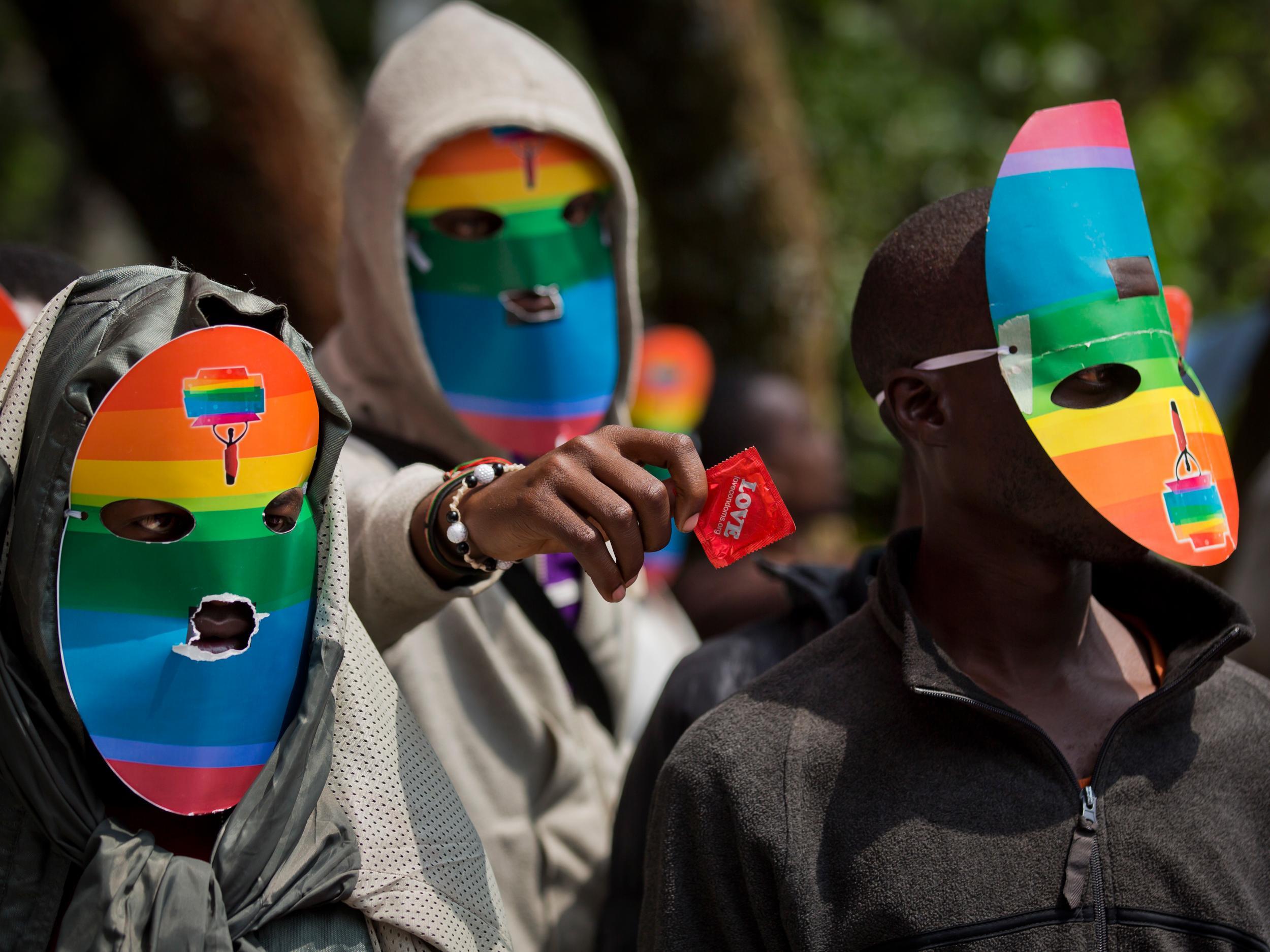Kenya rules anal homosexual tests legal
Engaging in gay sex is a criminal activity in Kenya and punishable by up to 14 years in prison

Your support helps us to tell the story
From reproductive rights to climate change to Big Tech, The Independent is on the ground when the story is developing. Whether it's investigating the financials of Elon Musk's pro-Trump PAC or producing our latest documentary, 'The A Word', which shines a light on the American women fighting for reproductive rights, we know how important it is to parse out the facts from the messaging.
At such a critical moment in US history, we need reporters on the ground. Your donation allows us to keep sending journalists to speak to both sides of the story.
The Independent is trusted by Americans across the entire political spectrum. And unlike many other quality news outlets, we choose not to lock Americans out of our reporting and analysis with paywalls. We believe quality journalism should be available to everyone, paid for by those who can afford it.
Your support makes all the difference.A Kenyan High Court has upheld the use of anal examinations to determine sexual orientation despite arguments that the procedure amounts to torture and degrading treatment.
Two men being tried for having gay sex in Kenya lost a petition which argued they had been forced into undergoing anal examinations by security personnel in a public hospital in Mombasa in February 2015.
The unnamed men, who deny the charges, said the anal examinations and HIV and hepatitis B tests they were forced to have, amounted to being subjected to torture and degrading treatment.
Mombasa High Court Judge Mathew Emukule ruled there was no violation of rights or the law in the examinations, saying there was sufficient justification under Kenyan law to allow the intrusion into the human body for the purpose of gathering evidence to prove sexually related crime.
“I find no violation of human dignity, right to privacy and right to freedom of the petitioners," he said. “The petition has no merit and is dismissed.”
The judge said the petitioners should have used their lawyers to seek injunction orders to avoid undergoing the tests.
The two men were arrested in a bar near Ukunda along Kenya’s Indian Ocean coast in early 2015 on suspicion of engaging in gay sex, which is a criminal activity in Kenya and punishable by up to 14 years in prison.
Law enforcement officials and some medical personnel in Kenya claim that by forcibly penetrating or otherwise examining the anuses of men accused of homosexuality, they can determine the tone of the anal sphincter and draw conclusions as to whether these men have engaged in homosexual conduct.
However, many human rights groups have discredited the practice.
Neela Ghoshal, senior researcher on lesbian, gay, bisexual, and transgender (LGBT) rights at Human Rights Watch said: “Anal examinations prove nothing, and they accomplish nothing, other than humiliating and demeaning people who are considered moral ‘outcasts’.
“It’s frankly shocking to see such archaic methods used in Kenya in the 21st century.”
The Independent Forensic Experts Group (IFEG) has also condemned the anal examinations in a recent statement. Dr. Vincent Iacopino, medical director at Physicians for Human Rights and member of IFEG said: “Anal examinations to ‘detect homosexuality have no scientific value, are unethical, and constitute cruel, inhuman and degrading treatment and possibly torture.
“Sexual identity and orientation is not a disease or a crime and health professionals have no business diagnosing it or aiding State officials in policing and punishing people on the basis of their sexuality.”
Following the ruling, Eric Gitari, the executive director of the Kenyan National Gay and Lesbian Human Rights Commission, which has supported the petition said: “I sat in court holding my chin in disbelief.
“It’s so painful when we are trying to encourage the gay community to go to court to affirm their rights; the courts are instead affirming violation of their rights.”
On a visit to Kenya in July last year US President Barack Obama equated discrimination against gays to treating people differently because of race, adding: “That’s the path whereby freedoms begin to erode.”
The men’s trial is on-going. Mr Gitari says they will appeal.
Additional reporting by agencies
Join our commenting forum
Join thought-provoking conversations, follow other Independent readers and see their replies
Comments